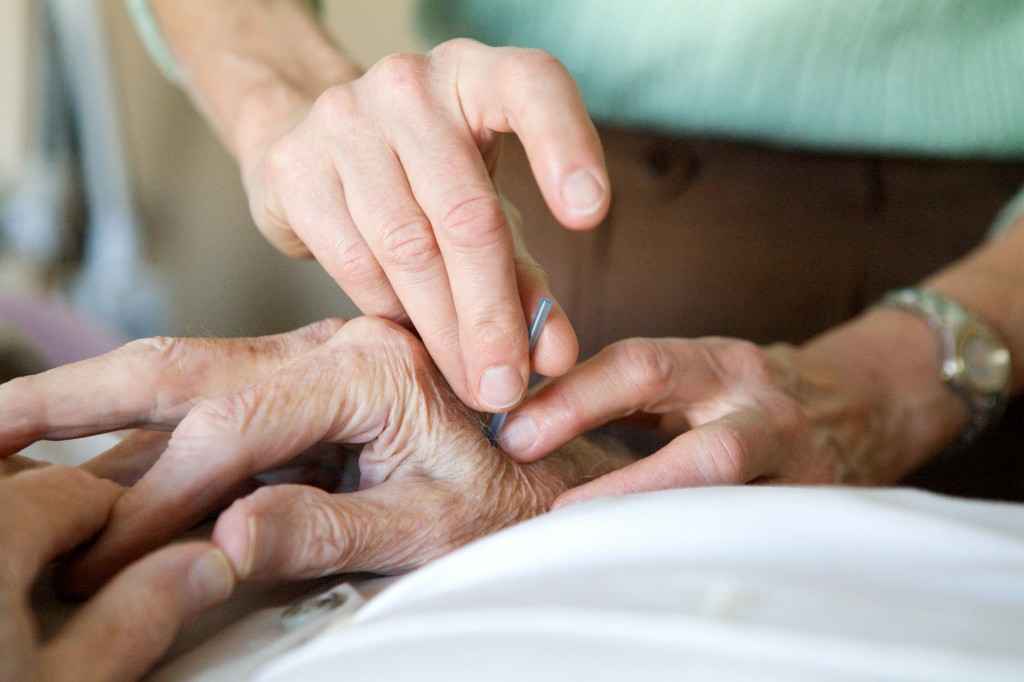Acupuncture is part of a larger Chinese (and other Oriental countries) medical tradition. Based on several thousand generations of healers examining people, over time a system of patterns linking symptoms and treatments emerged that we know today as acupuncture.
In Oriental Medicine each person’s body continuously moves toward a dynamic balance between extremes, e.g. hot or cold, up or down, in or out, light or dark, etc. When the body’s dynamic balance gets pushed towards one extreme or another, it experiences disharmony, which, if uncorrected, eventually can lead to disease,. During an Oriental Medicine treatment, we examine what brought the body into disharmony and what is needed to return it to balance. Once rebalanced, the body can marshal the resources it needs to heal, and stay healthy. Consequently Oriental Medicine can treat problems even before they become diseases.
In the U.S. acupuncture has become well known as an effective treatment for pain. In addition to pain relief and resolution, the whole-person approach of Oriental Medicine also is effective in treating a wide range of disorders. Among them are:
- Musculoskeletal: frozen shoulder, tendonitis, sciatica, repetitive strain injuries, trauma
- Neurological: headaches and migraines, dizziness, vertigo, Bell’s Palsy
- Gynecological: all menstrual issues, PMS, infertility, menopausal symptoms
- Respiratory: the common cold, sinusitis, asthma, chronic cough, allergies
- Psychological & Emotional: mood swings, depression, anxiety, stress
- Digestive: indigestion, nausea & morning sickness, gastritis, diarrhea, constipation
- Urogenital: urinary difficulties, cystitis, incontinence, prolapse
- General: insomnia, immune deficiency, prevention of colds

